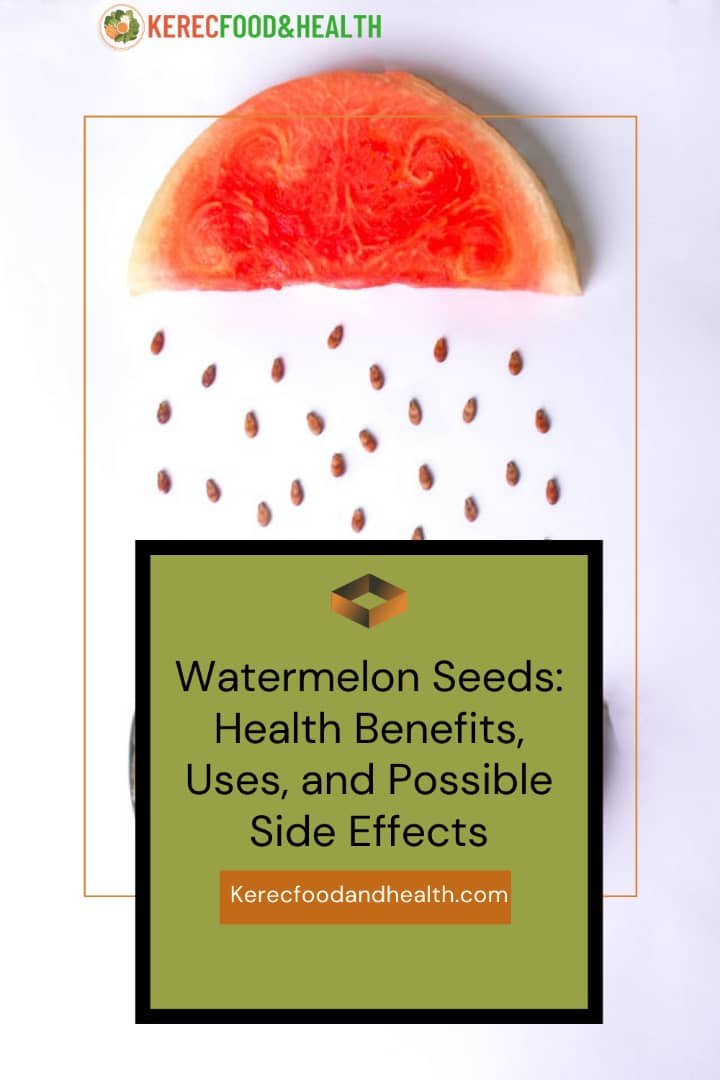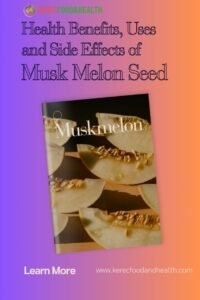Watermelon Seed
When it comes to summer fruits, watermelon is a classic favorite. Delicious, juicy, and refreshing, this fruit is a staple at picnics and barbecues.
But what about the watermelon seeds? Many people simply spit them out or pick them out of their watermelon slices, but did you know that watermelon seeds are actually quite nutritious and can be a tasty snack on their own?
In this blog post, we’ll take a closer look at watermelon seeds, their health benefits, and some delicious ways to enjoy them. So, the next time you’re enjoying a juicy slice of watermelon, don’t toss those seeds aside – they may just become your new favorite snack!
What Are Watermelon Seeds
Watermelon The seeds are the small, hard-shelled seeds found within the flesh of a watermelon. These seeds can range in color from white to black and are edible. They are often discarded when eating the juicy flesh of the watermelon, but in many cultures, they are a popular snack and are also used in cooking and baking. The seeds of watermelon are nutrient-dense and can be a great source of protein, healthy fats, and vitamins. They can be consumed roasted or raw, and are often seasoned for added flavor. These versatile seeds can be a tasty and nutritious addition to your diet.
Health Benefits of Watermelon Seed
Watermelon seeds are often overlooked, but they offer several health benefits. Some of these benefits include:
1. Nutrient-dense
The seeds of watermelon are packed with essential nutrients like protein, healthy fats, vitamins (such as vitamin B, folate, and minerals like magnesium, iron, potassium, and zinc. These nutrients are important for maintaining overall health and supporting various bodily functions.
2. Good for heart health
The combination of healthy fats, fiber, and antioxidants in watermelon seeds can support heart health, lower cholesterol levels, reduce inflammation, and improve overall cardiovascular function. The magnesium content in the seeds of watermelon can contribute to heart health and may help regulate blood pressure.
3. Rich in antioxidants
Watermelon seeds contain antioxidants, such as vitamin C, lycopene, and phenolic compounds. These antioxidants help protect the body from oxidative stress and inflammation caused by free radicals, which can damage cells and contribute to various health issues, including chronic diseases.
4. Supports immune function
Watermelon seeds are rich in vitamins and minerals that support a healthy immune system. Vitamin C, in particular, is important for immune function and can help prevent common illnesses and infections. The zinc content in watermelon seed can support the immune system and help with wound healing
5. Promotes digestive health
The fiber content in watermelon seed can aid in digestion and support overall digestive health.
6. Supports bone health
Watermelon seed contain various minerals like magnesium, phosphorus, and calcium, which are essential for maintaining strong and healthy bones and teeth.
7. May aid in weight management
Despite their caloric content, watermelon seed can still be beneficial for weight management. The combination of protein, healthy fats, and fiber in these seeds help keep you feeling full, promote satiety, reduce cravings, and support a balanced diet.
8. Rich in healthy fats
Watermelon seed contain unsaturated fats, including omega-3 fatty acids, which are beneficial for heart health, brain function, and reducing inflammation in the body.
9. High in protein
Watermelon seed is a good source of plant-based protein. Protein is essential for muscle repair and growth, hormone production, and overall body functions.
10. Good source of fiber
The seeds of watermelon are high in dietary fiber, which aids in digestion, helps prevent constipation, and promotes a healthy digestive system. Consuming adequate fiber can also help regulate blood sugar levels and support weight management.
It’s important to note that while watermelon seeds offer these potential health benefits, they should be consumed in moderation as part of a balanced diet. Additionally, some people may be allergic to seeds and should exercise caution when consuming them.
Uses Of Watermelon Seed
Watermelon seed have been used for various purposes:
1. Eating
Watermelon seed is edible and can be consumed as a snack, either raw or roasted. They are a popular snack in some cultures, and are often seasoned for added flavor.
2. Culinary uses
Watermelon seed is sometimes used as an ingredient in cooking and baking. They can be ground into a powder and added to recipes for a nutritional boost.
3. Oil production
The seeds of watermelon are a source of oil and are sometimes used for oil extraction. The oil can be used in cooking or as a moisturizing oil in cosmetics.
4. Traditional medicine
Some cultures use watermelon seed in traditional medicine for their potential health benefits, such as promoting digestion, reducing inflammation, and supporting heart health.
5. Farming
The seeds of watermelon are used for cultivating watermelon plants, allowing for the production of watermelons for consumption.
6. Arts and Crafts
In some cultures, the seeds of watermelon are used for decorative purposes in arts and crafts, such as creating jewelry or using them in traditional folk art.
It’s important to note that while watermelon seed have various potential uses, they should be consumed in moderation and with consideration for any potential allergies or adverse reactions.
Sides Effects of Watermelon Seed
Watermelon seeds are generally safe for consumption and can offer several health benefits. However, there are a few potential side effects to be aware of:
1. Intestinal blockage
Eating a large amount of watermelon seeds, especially when not chewed thoroughly, could potentially lead to intestinal blockage. This risk is higher when consuming seeds in their raw, unprocessed form. It’s important to eat them in moderation and in a way that allows for proper digestion.
2. Allergic reactions
Some individuals may have allergic reactions to watermelon seed. If you have a known allergy to seeds, nuts, or similar foods, it’s best to avoid consuming watermelon seed to prevent any adverse reactions.
3. Cyanide content
Watermelon seed contain a compound called amygdalin, which has the potential to release cyanide when metabolized in the body. However, the amount of amygdalin in watermelon seed is generally very low and would not pose a risk when consumed in normal amounts. It’s therefore, essential to eat them in moderation and avoid excessive consumption.
4. Digestive discomfort
Eating a large number of watermelon seeds at once can cause digestive discomfort, such as bloating or stomach upset, due to their high fiber content. It’s important to consume them in reasonable quantities and drink plenty of water to aid digestion.
5. Pesticide residues
If the watermelon seeds are not organic or are contaminated with pesticides, there could be potential health risks associated with pesticide residues. It’s best to choose organic sources, when possible, to reduce this risk.
As with any food, it’s essential to consume watermelon seed in moderation and pay attention to how your body responds. If you have any concerns or underlying health conditions, it’s advisable to consult a healthcare professional before adding watermelon seed to your diet.





